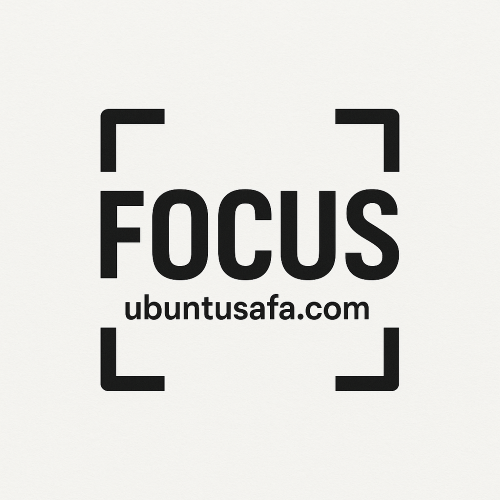Focus On South-Sudan:- What are the barriers to attracting foreign investment in South Sudan’s fragile political climate?

South Sudan faces significant hurdles in attracting foreign investment because political fragility, weak institutions, and ongoing conflict make the risk–reward calculus extremely unfavorable.
The barriers can be grouped into political, legal, security, and economic factors.
1. Political & Governance Barriers
-
Unstable leadership and elite bargaining: Frequent disputes between President Kiir and rival factions (e.g., Machar) create policy unpredictability. Investors cannot rely on consistent regulations.
-
Corruption & lack of transparency: Oil revenues and contracts are often opaque; nepotism and rent-seeking erode confidence.
-
Weak institutions: Government ministries and regulatory bodies are under-resourced, undertrained, and often politicized. Licensing, land allocation, and tax approvals are slow and inconsistent.
-
Legal uncertainty: Contracts are not reliably enforced; judicial independence is minimal, so disputes often revert to extra-legal or violent resolution.
2. Security Barriers
-
Ongoing internal conflicts: Sporadic violence and militia activity disrupt transport corridors, markets, and mining areas.
-
Ethnicized security forces: Military and police loyalty is faction-based, leading to unpredictable enforcement and occasional targeting of foreign staff.
-
Kidnapping, theft, and attacks: Foreign staff and companies face personal risk; insurance premiums are extremely high.
-
Border and pipeline vulnerability: Key oil and trade routes (especially to Sudan for export) are subject to political or military disruptions.
3. Economic & Market Barriers
-
Single-commodity dependence: Oil dominates exports and government revenue; the lack of diversified sectors limits market opportunities.
-
Weak infrastructure: Roads, bridges, power, water, and communications are underdeveloped, increasing operational costs.
-
Small domestic market: Poverty, low purchasing power, and poor logistics limit demand for many products.
-
Currency volatility & inflation: Unpredictable monetary policy makes financial planning and long-term contracts risky.
4. Legal & Regulatory Barriers
-
Unclear investment codes: Tax incentives, land rights, and foreign ownership rules are inconsistently applied.
-
Unpredictable fees & informal charges: Checkpoints and local levies can be arbitrary, raising transaction costs.
-
Weak property rights: Land disputes are common, especially in oil, agriculture, and mining regions.
-
Limited arbitration frameworks: Investors cannot reliably resolve disputes locally, and international arbitration may be politically blocked.
5. Social & Human Capital Barriers
-
Low skilled workforce: Few trained engineers, managers, or technicians, especially outside Juba.
-
Brain drain: Many educated South Sudanese leave for security or economic reasons.
-
Community resistance: Local populations sometimes view foreign investment as exploitative if benefits are not shared.
6. Reputational & Perception Risks
-
High-risk labeling: Political instability and recent arrests of top politicians (e.g., March 2025 detention of Machar) signal to investors a potential collapse of agreements.
-
International sanctions & donor conditionality: Past arms embargoes, oil-related sanctions, and human-rights scrutiny increase perceived political and financial risk.
Summary
Foreign investors see South Sudan as high-risk, high-friction, low-predictability:
| Barrier Type | Effect on Investment |
|---|---|
| Political & Governance | Policy reversals, elite capture, contract uncertainty |
| Security | Supply chain disruption, staff safety risk |
| Economic & Market | Limited diversification, high operational costs |
| Legal & Regulatory | Weak enforcement, unpredictable fees |
| Social & Human Capital | Skills shortages, local resistance |
| Reputational | Perception of instability deters capital |
Bottom line: Without political stabilization, legal clarity, infrastructure, and security guarantees, foreign investors will remain hesitant.
Any significant inflow will likely require high-risk premiums, strong insurance, and government-backed guarantees, which are currently insufficiently reliable in South Sudan.
- Questions and Answers
- Opinion
- Motivational and Inspiring Story
- Technology
- Live and Let live
- Focus
- Geopolitics
- Military-Arms/Equipment
- Segurança
- Economy
- Beasts of Nations
- Machine Tools-The “Mother Industry”
- Art
- Causes
- Crafts
- Dance
- Drinks
- Film/Movie
- Fitness
- Food
- Jogos
- Gardening
- Health
- Início
- Literature
- Music
- Networking
- Outro
- Party
- Religion
- Shopping
- Sports
- Theater
- Health and Wellness
- News
- Culture

